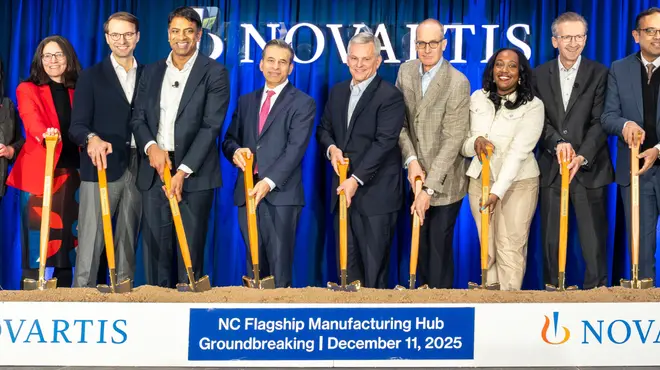To advance the work we do for and with communities, we look to connect with experts and listen to diverse voices. From patients and care partners to health care teams, hearing from all individuals impacted by a disease supports improved outcomes.
In an effort to identify areas of need for people living with chronic myeloid leukemia (CML), our patient advocacy and medical teams convened a summit at the ASCO 2024 Annual Meeting to discuss the challenges and burdens of living with CML. Summit participants, including physicians and patient group leaders, focused on a number of key issues, such as the need to identify communication gaps and barriers between patients and their health care teams. They also discussed ways to ensure patients’ treatment priorities are being considered, touching on topics like checking in on how well an established plan is working and how easy it is for patients to follow the plan.
With an emphasis on open and transparent conversations, summit participants discussed collaborative decision-making for individuals living with CML and ultimately uncovered the following areas where joint efforts can help improve experiences.
The importance of language and empathy during diagnosis
During the CML summit, patient advocates shared observations surrounding the difficulty of receiving a CML diagnosis and agreed that word choice always matters. The first mention of cancer or leukemia can be shocking for a newly diagnosed patient, and our medical experts found that empathetic language can make a difference. Recommendations included starting difficult conversations by explaining that CML is a highly treatable condition to help put a patient more at ease with their diagnosis.
Using plain language and avoiding overly technical explanations in early appointments was another suggestion, along with encouraging patients to take some time to digest and understand a diagnosis before jumping into treatment decisions. Addressing a person’s emotional and mental health at this stage is also critical. Scheduling frequent interactions during initial diagnosis can help with education and decision-making as a patient begins CML treatment.
Managing disease impact means open, ongoing dialogue
Physician participants in the summit discussed the importance of using time at each clinic visit to make sure both the patient and physician understand each other’s evolving treatment goals over time. Through these ongoing discussions, they can collaboratively assess how well a current treatment plan might be working and ensure a person’s individual needs, priorities, and experiences are considered.
In addition, participating physicians recognized that they may inadvertently downplay the impact of side effects on someone living with CML, including how side effects could impair their ability to follow their treatment plan. In these instances, they recommend inviting patients to speak up and encourage the health care team to ask questions with an open approach to promote productive dialogue. Instead of, “How many doses have you missed?”, try asking, “How many doses are you able to take?”, and “What does your average day look like?”
Shared decision-making and defining tolerability are essential to a treatment plan
Perspectives about the definition of tolerability were another key focus of the summit. Participating medical experts collectively agreed that tolerability must be viewed through the lens of an individual person’s experiences and circumstances over time. People living with CML have personal preferences for how they balance treatment benefits against the impact on their daily lives. Both medical experts and patient advocates acknowledged the need to improve communication between patients and physicians as treatment progresses, emphasizing the importance of shared decision-making in defining and redefining the most suitable treatment regimen.
Summit participants also noted that there are tools available that can help maintain open lines of communication and yield better understanding among health care teams. Communication guides, and other resources can help align treatment goals, track side effects and their significance, and guide discussions about options for adjusting treatment or considering whether a medication switch is necessary. Participants also agreed on the need for developing new, patient-centered, CML-specific tools for use in the clinical setting that can assist in guiding open conversations and facilitate this important dialogue over time.
Improving the patient and provider experience from pre-diagnosis to care management
Learnings from the Community Perspectives on the Chronic Myeloid Leukemia (CML) Patient Experience can be found here.
The hope of this project is to provide ways for patients and providers to improve their shared experience and make a positive impact on overall outcomes.


